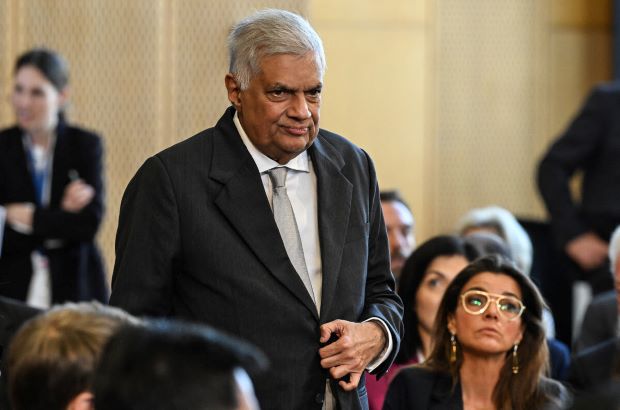IFJ, affiliates urge Parliament to withdraw controversial Online Safety Bill
New legislation presented to Sri Lanka’s Parliament on Tuesday (3) has been criticized as impacting freedom of expression and information in online spaces, with a new commission allowed to define, regulate, and prosecute the production or publication of ‘false statements’. The International Federation of Journalists (IFJ) and its Sri Lankan affiliates, the Federation of Media Employees’ Trade Unions (FMETU), the Free Media Movement (FMM), and the Sri Lanka Working Journalists Association (SLWJA) urge the Sri Lankan parliament to withdraw the bill immediately and conduct an immediate and thorough review in consultation with media stakeholders.
The controversial Online Safety Bill was presented before Sri Lanka’s Parliament on Tuesday, following the official introduction of the bill through the government’s gazette on September 18. The proposed bill cannot be debated for at least two weeks to allow legal challenges in the Supreme Court.
The bill would establish an Online Safety Commission, consisting of five members both appointed and dismissed directly by the President. This body would have the exclusive power to decide if statements made online are ‘false’ or ‘prohibited’. The commission could order internet service providers to remove or restrict access to statements or sites, with some proposed powers allowing powers to investigate and prosecute violators.
The legislation, allegedly designed to regulate online content and enhance user safety, has been widely criticized for its potential to challenge constitutional human rights protections. Those found to violate the act by the Commission potentially facing imprisonment or substantial fines. Journalists and media workers alleged to have made false statements may be prosecuted, with news outlets able to be deemed ‘prohibited sites’ and shut down.
On October 3, the SLWJA submitted a petition to Sri Lanka’s Supreme Court challenging the bill’s risks to constitutional rights, citing its disproportionate punishments, overly broad powers, and ill-defined language as potential dangers to press freedom and freedom of expression.
In April, the Sri Lankan Parliament’s proposed Anti-Terrorism Act (ATA) was condemned by the IFJ and other human rights and press freedom bodies as a distinct threat to fundamental freedoms of expression, assembly, and the press. If passed, the ATA would allow the President direct authority to order curfews, declare certain places ‘prohibited’, obtain restriction orders, and prohibit movement or activities, all without legal input.
The FMM said: “The Free Media Movement strongly urges the government to reconsider and withdraw this bill. It calls upon all parties who value a society that cherishes freedom of speech and expression, and that engages in civilized discourse rather than suppressing ideas, to unite and collaborate in addressing this important issue.”
The FMETU said: “The Federation of Media Employees Trade Unions and all media organizations strongly condemn the proposed draconian bill. In view of the economic, social, and political crisis that is growing in the country, we strongly believe that this is another law for the purposed of crossing the basic right to information and social freedom of the people. We strongly believe that these laws are specifically for the control of ‘social media’, which is becoming a social power.”
The SLWJA said: “The [Online Safety Bill] poses a significant threat to the fundamental right to freedom of speech and expression guaranteed by Article 14(1)(a) of the Constitution. They contend that the Bill’s provisions are overly broad and may exceed what is necessary to achieve its objectives, potentially infringing on these fundamental rights.”
The IFJ said: “The Online Safety Bill presented to parliament, if passed, would be in clear violation of Sri Lanka’s constitutional commitments to fundamental human rights. The proposed Commission, entirely controlled by the President, is contrary to the self-regulating media system necessary for true press freedom. The IFJ strongly urges Sri Lankan authorities to withdraw the proposed legislation and engage with media and legal stakeholders in its consultation processes.”
-IFJ



Comments are closed, but trackbacks and pingbacks are open.